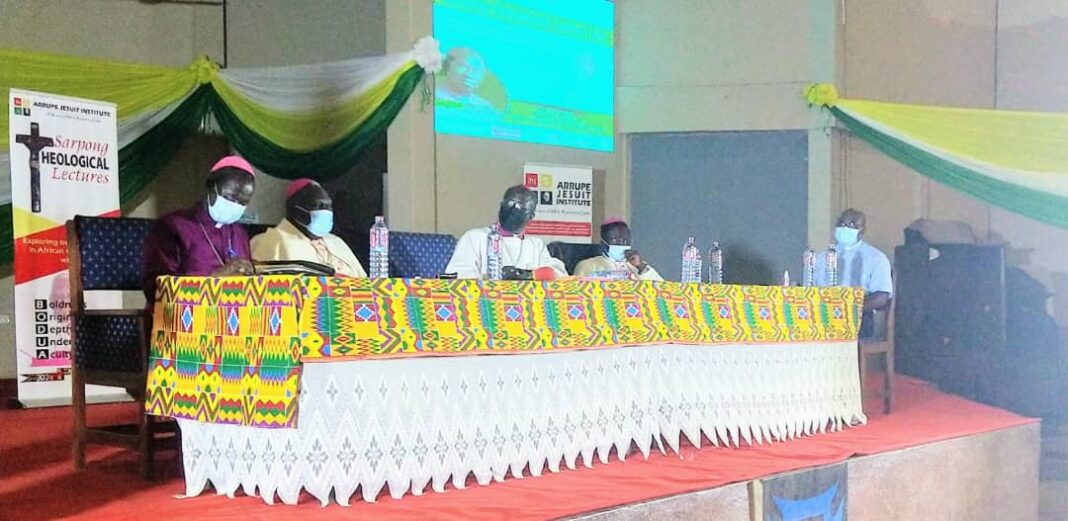The inaugural Archbishop Sarpong Theological Lecture has been held in the Catholic Archdiocese of Kumasi.
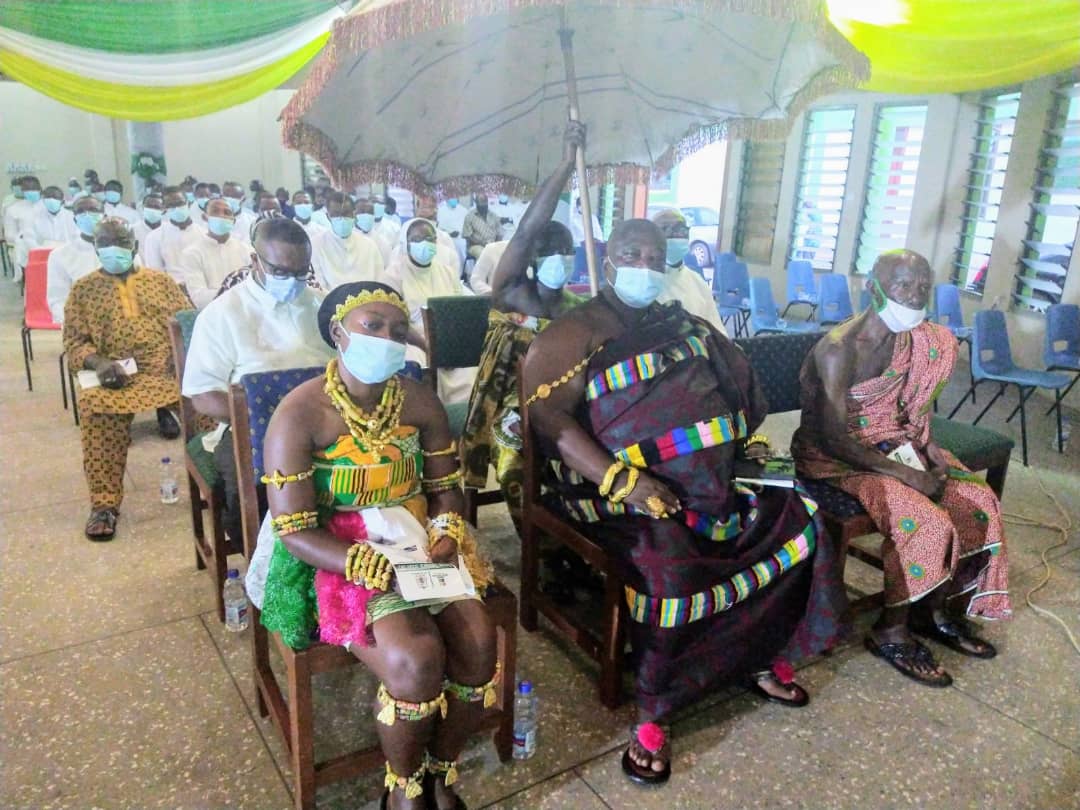
The biennial forum which honors the intellectual legacy of the Catholic Archbishop emeritus of Ghana’s Kumasi Archdiocese, Peter Kwasi Sarpong was held at the St. Loius College of Education in the Ashanti Region on October 1.
The lecture put together by the Arrupe Jesuit Institute, a social justice centre also aims at celebrating persons it describes as living legends who shaped theology in Africa.
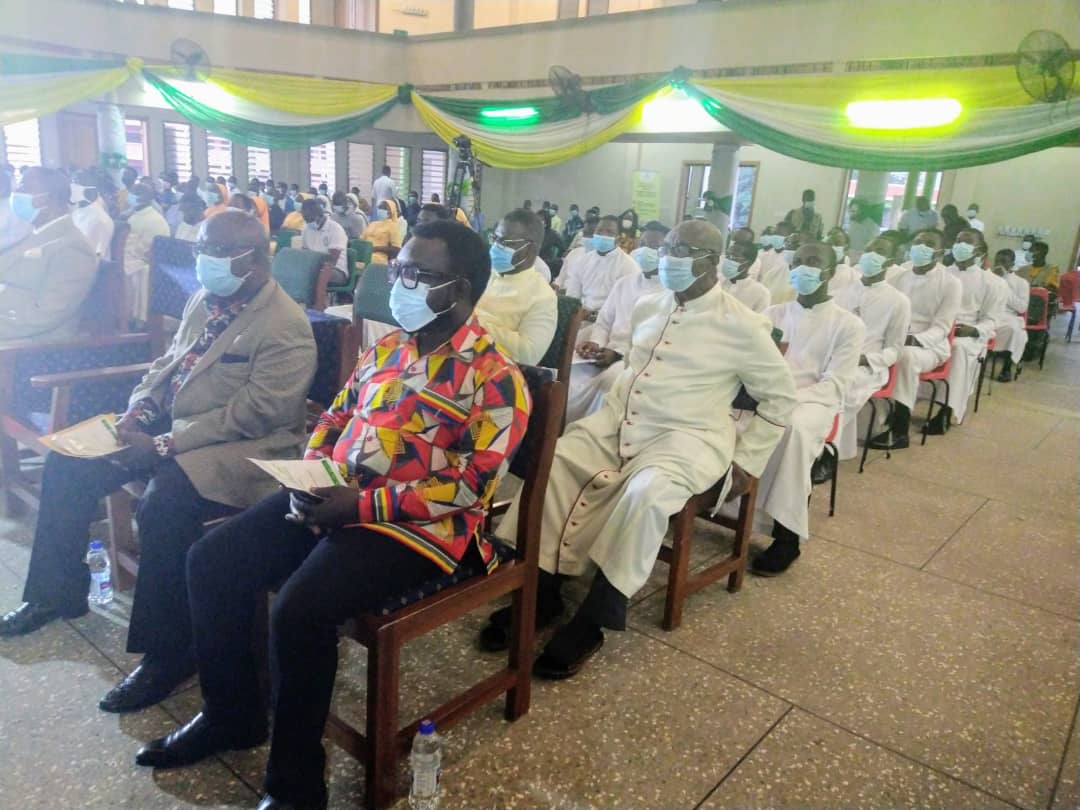
Speaking at the event, the Director of the Arrupe Jesuit Institute, Rev. Fr. Kpanie Addy said “In trying to attain excellence, particularly with respect to scholarly research and formation pertaining to Christianity in Africa, we saw some giant on whose shoulders we could see further. We did not have to look far for right here in Kumasi we encountered a man I prefer to call a colossus of Christianity in Ghana and Africa. For us, the Sarpong Theological Lecture honors the intellectual legacy of Emeritus Archbishop Kwesi Sarpong by exploring trends and issues in African Christianity with Boldness, Originality, Depth, Understanding and Acuity”
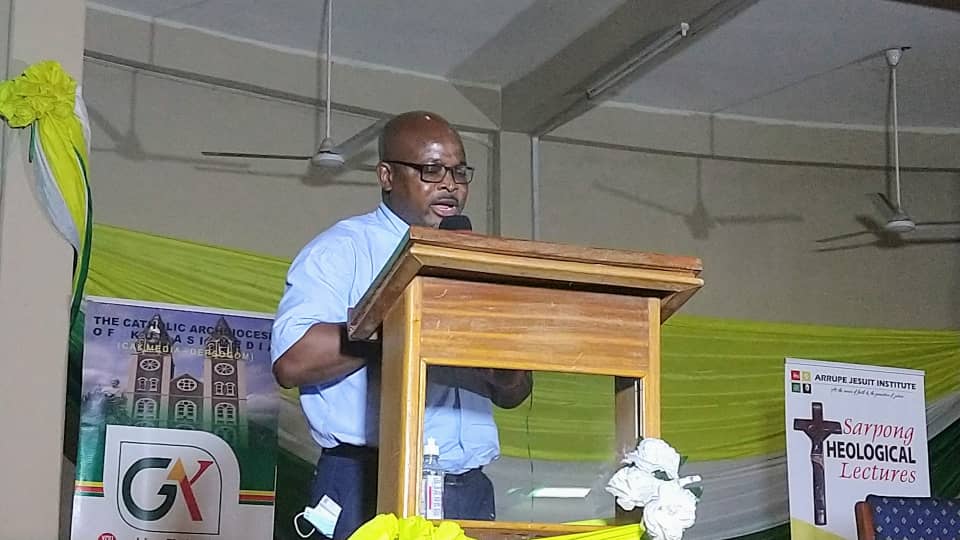
The first in the series of the lecture was delivered by the first African recipient of the Ratzinger Prize, Rev. Fr Paul Béré, on the topic, “Because Peoples Differ: Should African Theology Go Global?”
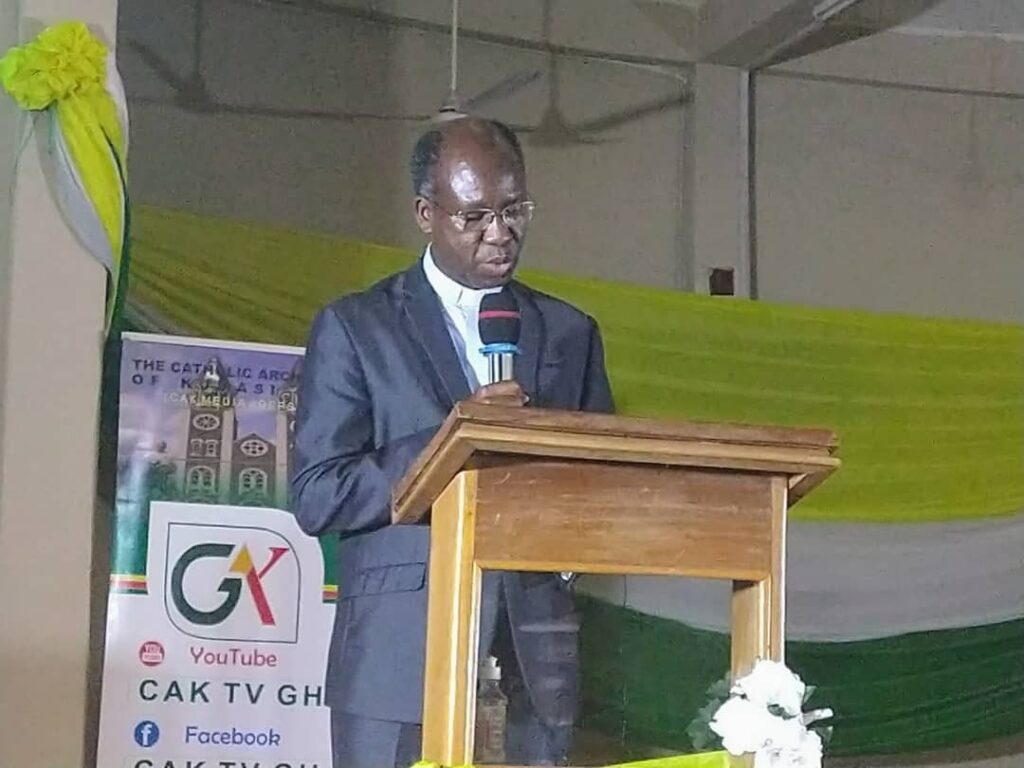
Fr Paul Béré noted that is expedient for Africans to allow the message of Christ take root in their culture.
“If indeed “peoples differ” what are we, Catholics, Christians, making of that difference? Are we allowing it to inform our way of thinking, feeling, and acting or are we simply ignoring it, pretending that it does not matter? The subtitle of the book, I believe, is meant to justify the enterprise: “inculturation in evangelization.” It means allowing the Gospel to take roots in our or each African culture,” he said.
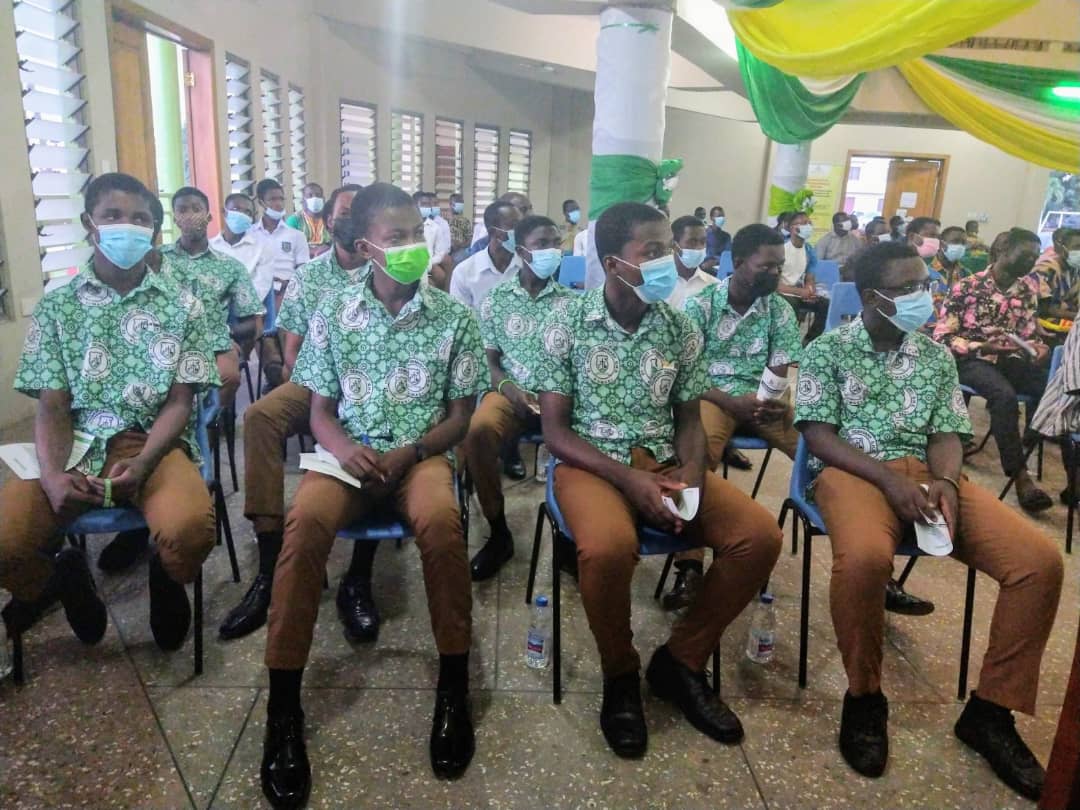
“We are now facing a paradox: because Christianity claims to be universal, we should commit ourselves to the task of inculturation, which means the ‘incarnation’ of the Gospel message. In other terms, Christianity as a universal reality should find a visible form in a concrete human reality. Each people, in the process of joining the community of the disciples of Jesus, should become fully themselves. That’s the condition for Christianity to be authentically what it claims to be,” he added.

